Denial is a very controversial concept in psychology. It is often used to describe someone who has been accused of wrongdoing, yet denies the accusation. However, denial can also be applied to any situation where an individual refuses to acknowledge what they are doing or saying. In this blog post, we will cover denial in psychology as an extensive concept.
Contents
Understanding Denial
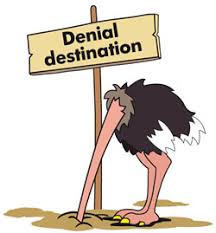
Denial is a psychological defense mechanism that occurs when an individual refuses to acknowledge facts. As opposed to lying, the person believes what they are saying. Denying reality can be dangerous in some cases because it enables people who have committed crimes or other wrongdoing to avoid responsibility for their actions. When someone denies doing something wrong, it may be because they are trying to avoid responsibility for their actions. There is a difference between an individual who believes what he or she did was right and someone who claims not to have done the action at all.
Types of Denial
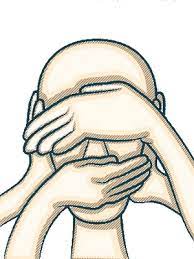
Denial can come in many forms, each with its definition based on psychology. Here are some common types of denial:
Denial/negation
The person simply refuses to believe a fact is true. They might claim the incident never happened and that it’s all in your head or say they didn’t do something even though there is evidence against them. For example, someone who has committed a crime might deny that they did it simply because they don’t want to accept their guilt.
Denial of impact
This type of denial involves refusing to admit the negative effects or outcomes of an action or situation. For instance, someone may claim not to have done anything wrong even though he hurt another person in the process.
Denial of awareness
This is when an individual refuses to admit that he or she knew what they were doing, even though their actions had consequences. A person might claim not to have known it was wrong because they didn’t mean any harm by it. For example, your significant other may say you two are just friends even though he has been flirting with you and getting jealous when another guy talks to you.
Affected ignorance
The person refuses to believe the fact is true, but they actually know that it’s true and will even provide evidence of their knowledge. For example, if you tell them there are no more cookies left in the cookie jar and they say “I don’t care; I refuse to believe you,” that would be denial.
However, if they say “I know there aren’t any more cookies in the jar because I ate them all last night and felt sick afterward. So don’t tell me what I know isn’t true! You have no idea how my body feels after eating too many cookies,” that would be affected by ignorance.
Participation mystique
This form of denial occurs when an individual refuses to believe something is wrong. Even though they know it should be considered unacceptable by society standards and therefore does not apply to them in particular.
For example, a person who knows adultery is generally seen as a moral violation might say “I know it’s wrong for other people. But I never agreed to that rule and don’t feel like cheating is a violation of my morals. If others can do it, why can’t I?”
Word salad
This occurs when the person makes an effort to deny something by coming up with random words or phrases that have no logical connection to the topic at hand. This can be used as a form of evasion or distraction.
Causes Of Denial
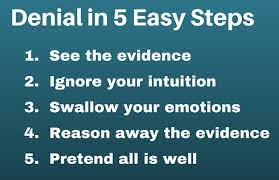
There is no one answer to this question because each person’s experience with denial is different. However, some factors that might contribute to someone becoming a denier include:
- Feeling as though they don’t deserve to be happy
- Feeling as though it’s unfair that other people have what they want
- Believing their lies and exaggerations about a situation, so why not others’ too?
NOTE: In some cases, denial is used as a coping mechanism for dealing with extreme or traumatic events. For example, someone who has experienced a lot of loss in their life may become a denier to protect themselves from future pain.
Factors That Influence Denial
Many factors can influence how and why someone denies something. Some of these include:
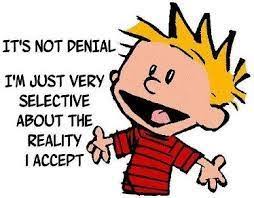
- The severity of the event or situation
- The person’s emotional state at the time
- The person’s values, beliefs, and opinions
- Whether or not they feel threatened by what is being denied
For instance, someone might deny that their spouse of 30 years has been cheating on them because it would be too devastating for them to accept. Or a woman may claim she wasn’t raped because she doesn’t want people to think she’s a slut.
Denial in Therapy and Mental Health

When it comes to mental health, denial can take many different forms. There are a few key types of denial that occur in therapy and mental health conditions, including:
Denial of illness
This is when a person doesn’t believe they have an illness or disease even though there are clear signs. For example, someone who has been diagnosed with cancer might refuse to take medication for their condition because they think it’s “all in their head.”
Denial of treatment
Similar to denial of illness, this is when a person refuses to undergo or finish treatment for their condition. This often happens because they think they can fight the illness on their own or that the treatments are too harsh.
Denial of reality
This type of denial usually occurs in people who have a psychotic disorder. In these cases, the person might refuse to accept that something is true even when there is clear evidence of it being real. For example, they may be confused about what’s going on or unable to remember past events accurately because their memory has been affected by hallucinations and delusions.
Denial Otherwise
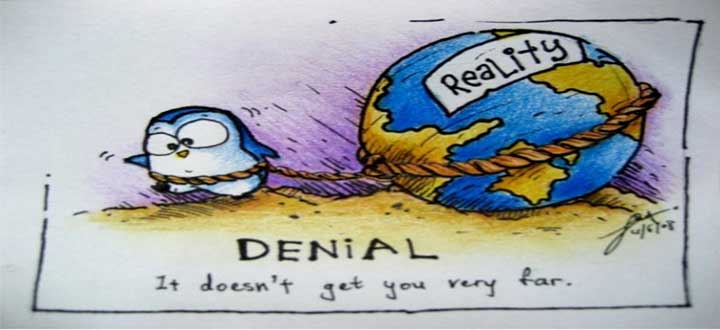
Does denial play a role in addiction?
There is no one answer to this question because there can be many different factors causing addiction. However, some people do use denial as a way to avoid facing the reality of their addiction. This might involve refusing to believe they have a problem or pretending that their substance abuse isn’t harming their life.
Does denial occur in mental health conditions?
Yes, it can. For example, people with an eating disorder might deny having a problem even though they are dangerously thin or experiencing other symptoms of the disease. People who suffer from anxiety disorders may refuse to leave their house because they think everyone is judging them and therefore deny that they have a problem.
Is the concept of denial controversial in therapy?
The idea of denying something is controversial because it’s often compared to lying and doesn’t support trust between therapist and patient. However, there are times when denial can be helpful as long as you understand why people use this defense mechanism and how it’s affecting them.
How is denial addressed in therapy?
If denial is identified as a contributing factor in mental health or therapy, the therapist will likely try to address it through different methods. This can include:

- Education and awareness about the condition
- Supporting and encouraging the person to accept reality
- Helping them understand how their denial is impacting their life
- Providing coping skills for dealing with difficult emotions and situations
Denial in Everyday Life
While denial is often seen as a negative thing, there are times when it can be helpful. For example, if you’re feeling overwhelmed by a situation, it can be helpful to deny the reality of what’s happening to give yourself some time to process things. In other cases, people might deny the fact that they are angry with someone to avoid an argument.
What’s an example of denial?
One common way to show you’re denying something is by saying “that isn’t what I meant!” when receiving feedback on a situation or idea. This can be seen as avoiding the issue or pretending that you didn’t hear what the other person said.
Can denial affect relationships?
Yes, it can. For example, if one partner is in denial about the seriousness of their relationship, it can lead to tension and arguments. Denial might also prevent couples from seeking help for problems they’re having because they don’t want to face the reality that their relationship is in trouble.
Can denial affect financial decisions?
Yes, it can. For example, someone might refuse to sell their stocks when the market is crashing because they don’t want to admit that they’re losing money. Or they may continue gambling even after losing a lot of money because they don’t want to face the reality that they’re going broke.
Can denial affect national policies and decisions?
Yes, it can. For example, a government might refuse to admit that there is a food shortage in their country even though people are starving. This type of denial can lead to disastrous consequences because the government isn’t taking steps to address the problem.
Is denial a stage in the grieving process?
No, it isn’t. Denial is often mistaken with feelings of loss and sadness due to grief. These emotions can be related because people sometimes feel uncomfortable about facing reality when they’re going through a difficult time. However, while these feelings might coexist, they are different things that happen at different times.
Denial As a Defense Mechanism
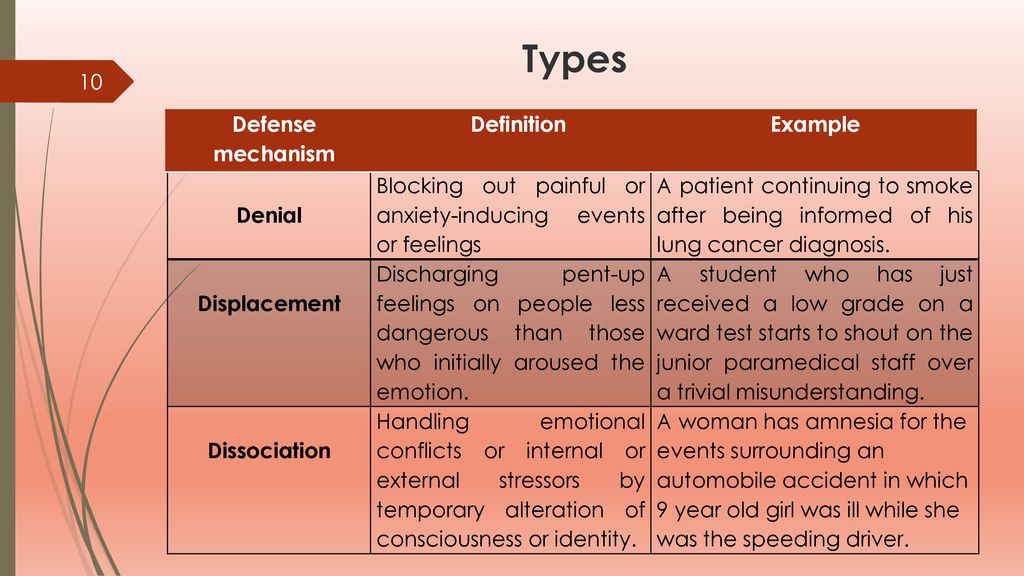
People use denial as a defense mechanism when they feel like they can’t cope with the reality of a situation. This might be because the reality is too painful, frightening, or overwhelming. When people use denial in this way, it often indicates that they are not ready or willing to deal with what’s happening.
What does it indicate?
Denial is a way of dealing with emotional pain rather than facing it. When people are in denial, they don’t want to think about what’s happening and instead focus on distractions or changing the subject whenever possible.
Optimism Vs. Denial
Optimism can sometimes lead people to deny bad things that happen because they don’t want to feel overwhelmed or defeated. However, it’s important to be able to accept and cope with the bad things in life so you can move on and do better next time.
When denial comes in conflict with optimism, it can also be a sign that someone is struggling. For example, if you’re always optimistic about your life but you find yourself constantly denying the reality of your situation, then this might mean that you’re not comfortable with how things are going.
Projection Vs. Denial
One way denial can become dangerous is when it intersects with projection. Projection occurs when someone denies their unacceptable thoughts, feelings, or impulses by attributing them to someone else.
For example, if someone is angry and denies their anger, they might project that anger onto the person they are arguing with. This can lead to all sorts of problems in relationships because it’s difficult to resolve an argument. Especially when you’re not even sure what the original issue was.
Rationalization Vs. Denial
Denial is a blanket term for many types of refusal or avoidance, such as lying about having done something wrong or not knowing what’s going on. However, it can be difficult to tell if someone is in denial or just using rationalization. Rationalization is a defense mechanism that occurs when someone tries to make excuses for their unacceptable thoughts, feelings, or actions. For example, if you cheated on your partner and then tried to come up with a million reasons why it wasn’t cheating, that would be rationalization.
NOTE: It can be difficult to tell the difference between denial and rationalization. But generally, denial is more about trying to avoid reality altogether. While rationalization is more about making excuses for unacceptable behavior.
Delusion Vs. Denial
When people are denying something, they aren’t admitting that it exists even though everyone else knows what’s happening. On the other hand, when people are delusional, they believe something that isn’t true. Even though there’s evidence to the contrary, they refuse to believe it out of psychological convenience. For example, someone who is delusional might believe that they are a world-famous singer, even though no one has ever heard of them.
NOTE: Denial and delusion can sometimes overlap, but generally, denial occurs when people refuse to accept the reality of a situation. While delusion happens when people believe something that isn’t true.
Experts’ View On Denial

While denial can be a positive thing, it often indicates that someone is struggling. If you find yourself in a situation where your emotions are running high. And the reality of what’s happening makes you want to deny it or change the subject. Then this might mean that the issue isn’t easy for you to deal with. In these cases, seeking professional help can be very beneficial.
When it comes to denial, there are a few different things to keep in mind:
- First, while these feelings might coexist, they are different things that happen at different times.
- Second, when people use denial as a defense mechanism, it often indicates that they are not ready or willing to deal with what’s happening.
- Lastly, it’s important to seek help when denial becomes chronic and negatively affects your well-being.
If you’re struggling with something emotionally or mentally that is making it hard for you to think about what’s happening. Then this might indicate that you need professional assistance from someone like a counselor.
Case Study
Joe is a 44-year-old man who has been struggling with denial for the past few years. He was recently diagnosed with cancer and, even though he knows that he needs to seek treatment, he keeps finding ways to avoid it.
When we talked to Joe about his situation, he said that he knew what was happening but he just didn’t want to believe it. He also mentioned that he felt like a burden on his family and friends and that he just wanted to “hide” from the diagnosis.
Joe is currently in denial about his cancer and, although it’s not impacting him positively, he refuses to seek help. In this case, denial might be causing more harm than good.
Coping With Denial
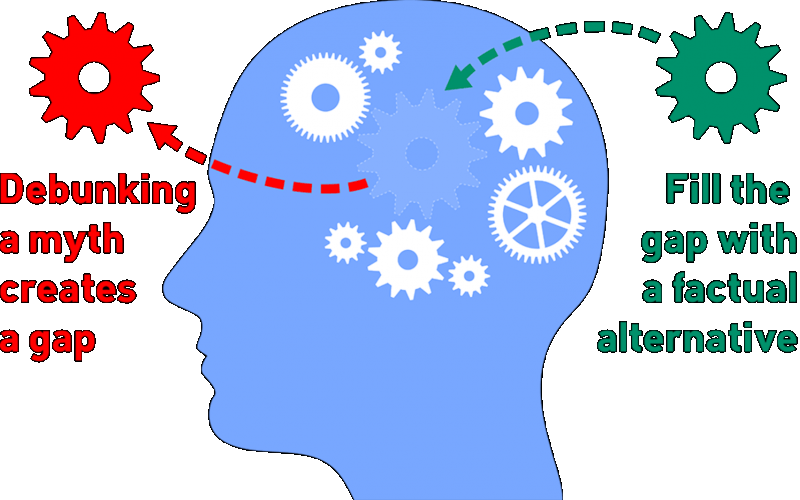
It can be difficult to cope with denial when it comes up to our lives. However, there are a few things that we can do to make the process a little easier.
- First, try to understand why they might be in denial and then act accordingly.
- Second, accept that sometimes people will use this defense mechanism or coping skill even though it doesn’t make sense at first glance.
- Third, if you need to step away for a little bit, do so but make sure that you come back when you’re ready.
- Lastly, find things to help distract yourself from the situation but make sure that they are positive activities that will bring good into your life.
NOTE: Denial is often difficult to deal with, but by following these tips we can make the process a little bit easier.
Talking To a Professional
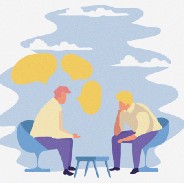
When it comes to denial, seeking professional help is always a good idea. This is because denial can often be an indicator that someone is struggling and might need assistance to deal with what’s happening.
If you’re feeling like you can’t cope with the emotions or reality of a situation, then talking to a professional can be very beneficial. They will be able to help you understand what’s happening and give you the tools that you need to deal with it.
If denial is negatively impacting your life, then make sure to seek professional help as soon as possible. It might seem scary at first, but remember that they are there to help you get through whatever you’re dealing with.
Therapies For Denial
There are a few different therapies that can be helpful when it comes to denial.
Cognitive-behavioral therapy (CBT)
First, cognitive-behavioral therapy (CBT) is often used to help people change the way they think about certain situations. This type of therapy can be very beneficial in helping people deal with denial and other defense mechanisms.
Second, family therapy might be a good option if the denial is happening within a family system. This type of therapy can help to identify any patterns that might be causing the denial and then work on changing them.
Third, group therapy can also be helpful in cases where denial is impacting many people. In this setting, people will be able to share their experiences and learn from one another.
Conclusion
Denial is a powerful feeling that can make the difficult things in life easier to deal with at first. However, denial can also get in the way of positive growth and change. It means you should never refuse to seek help from others when dealing with issues like this.
If you are looking for affordable Online Counseling MantraCare can help: Book a trial therapy session


